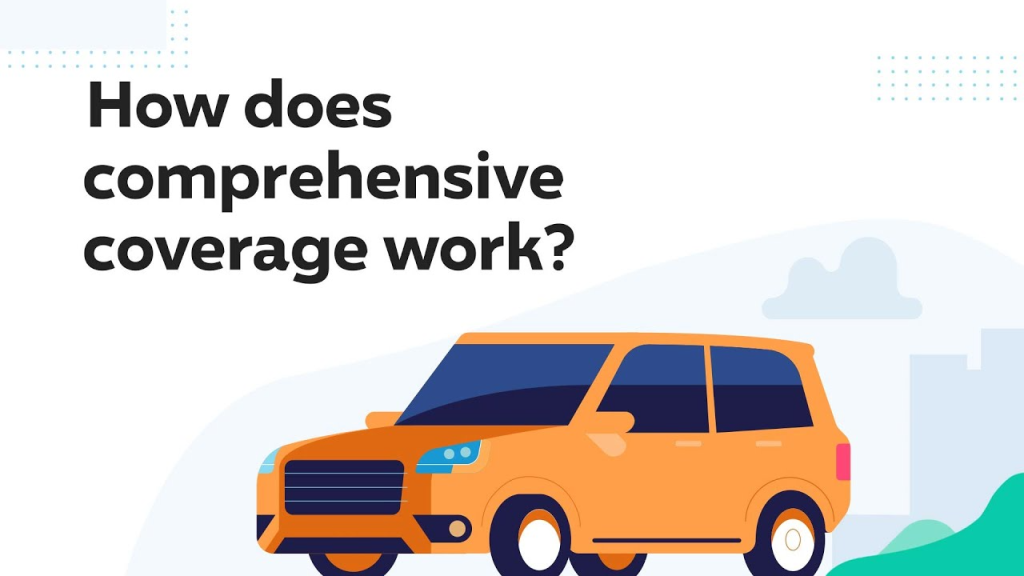Introduction
When it comes to auto insurance, comprehensive coverage is a topic that deserves your attention. Understanding what comprehensive auto insurance coverage entails can be the key to protecting your vehicle and your financial well-being. In this guide, we will explore the various aspects of comprehensive auto insurance coverage, providing you with valuable insights and answers to commonly asked questions.
Exploring Comprehensive Auto Insurance Coverage
What is Comprehensive Auto Insurance?
Comprehensive auto insurance, often referred to as “comp coverage,” is a type of insurance that provides coverage for damages to your vehicle that result from events other than collisions with other cars. These events may include theft, vandalism, natural disasters, and more. Comprehensive coverage complements your standard liability and collision coverage, offering you a broader range of protection.
Key Features of Comprehensive Auto Insurance
Comprehensive auto insurance typically covers a range of situations, including:
- Theft or attempted theft
- Vandalism
- Fire and explosions
- Natural disasters (e.g., hail, floods)
- Falling objects (e.g., tree branches)
- Animal collisions (e.g., hitting a deer)
Why Do You Need Comprehensive Auto Insurance?
Comprehensive auto insurance is essential because it protects you from the unexpected. While you may not anticipate every peril, comprehensive coverage ensures that you’re financially safeguarded in various situations. Without it, you could be left with significant repair or replacement costs in the event of damage or loss due to unforeseen events.
Is Comprehensive Auto Insurance Mandatory?
Unlike liability insurance, comprehensive auto insurance is not mandatory in most states. However, if you lease or finance your vehicle, your lender may require you to carry comprehensive coverage until your loan is paid off. Even if it’s not mandatory, considering the value of your vehicle and the potential risks you face is crucial when deciding whether to purchase comprehensive coverage.
How to Choose the Right Comprehensive Coverage
Selecting the right comprehensive auto insurance coverage involves considering several factors, such as your vehicle’s value, your budget, and your location. Here are some tips to help you make an informed decision:
- Evaluate the value of your vehicle: Consider the current market value of your car and whether it’s worth protecting with comprehensive coverage.
- Assess your budget: Determine how much you can afford in terms of deductibles and premiums.
- Review your location: If you live in an area prone to natural disasters or a high crime rate, comprehensive coverage may be especially valuable.
Common Misconceptions About Comprehensive Coverage
- It covers everything: While comprehensive coverage is extensive, it does not cover damage resulting from collisions with other vehicles or objects.
- It’s too expensive: Comprehensive coverage is generally affordable and can save you money in the long run by preventing costly out-of-pocket expenses.
- It’s redundant: Some drivers believe comprehensive coverage is unnecessary if they have collision coverage, but they serve different purposes.
- It’s the same as collision coverage: Collision coverage only protects you in accidents involving other vehicles, while comprehensive coverage includes a broader range of incidents.
Frequently Asked Questions (FAQs)
What is the cost of comprehensive auto insurance?
The cost of comprehensive auto insurance varies based on factors like your vehicle’s make and model, your location, and your chosen deductibles and coverage limits. On average, it can range from $100 to $300 annually.
Can I get comprehensive coverage for an old car?
Yes, you can get comprehensive coverage for older vehicles. However, it’s essential to consider the car’s value and whether the coverage cost is justified.
Does comprehensive insurance cover rental cars?
Comprehensive coverage typically extends to rental cars, but it’s crucial to check with your insurance provider to confirm this.
Is windshield damage covered by comprehensive insurance?
Yes, windshield damage is often covered by comprehensive insurance, and it’s a common reason why people opt for this coverage.
Do I need comprehensive coverage if I have a garage?
Having a garage can reduce the risk of some perils, but comprehensive coverage still offers protection against various unexpected events, making it valuable.
Can I lower my comprehensive insurance premiums?
You can lower your premiums by choosing a higher deductible, maintaining a clean driving record, and bundling your insurance policies.
Conclusion
Exploring comprehensive auto insurance coverage is a crucial step in safeguarding your vehicle and your financial security. By understanding what it entails, its benefits, and how to choose the right coverage, you can make informed decisions that protect your valuable assets. Remember that while comprehensive coverage may not be mandatory, it provides peace of mind in the face of unexpected events. Ensure you assess your unique circumstances to determine the level of protection that suits you best.
